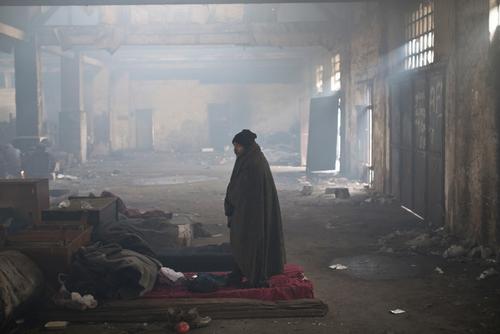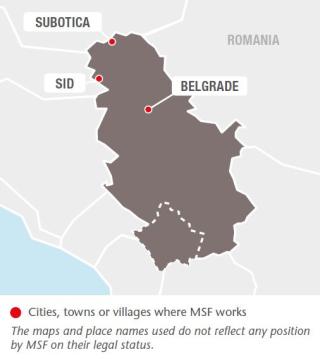
22,800
22,8
3,600
3,6
760
76
Despite the official closure of the ‘Balkan route’ in 2016, people continued to arrive in Serbia in 2017, on their way to other countries in Europe. At the beginning of the year, at least 2,000 people were stranded in an abandoned building in the centre of Belgrade, with no access to healthcare and enduring temperatures as low as -20°C. MSF provided medical support and erected tents to accommodate the most vulnerable people during the winter. In March, MSF opened a clinic in the city centre offering primary medical and mental healthcare.
Meanwhile, people trying to cross borders experienced violence and abuse allegedly perpetrated by border guards of multiple European countries, who used unnecessary force to push them back. MSF offered medical and mental health support to these victims of violence and denounced their inhumane treatment. A mobile team continued to provide primary health services along the Hungarian and Croatian borders throughout 2017.
Between January and December, MSF conducted over 22,800 consultations, for people stranded in Serbia and new arrivals fleeing war and seeking a better life. Most were aged between 16 and 25, although some were unaccompanied minors and families. Teams also started mental health activities outside the two main camps in the Belgrade area, where they have identified a worrying increase in numbers of people showing symptoms of distress, such as post-traumatic stress disorder, especially among those who are left with no alternative but to wait in administrative and legal limbo.


















